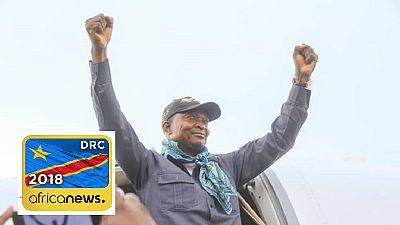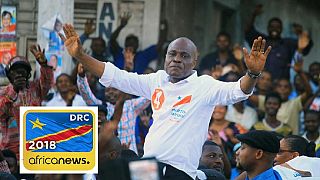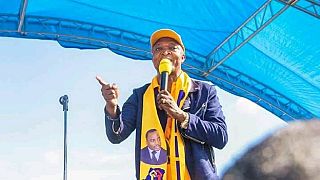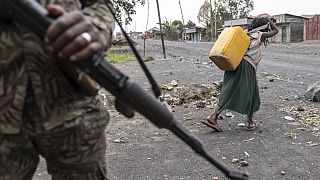Democratic Republic Of Congo
The European Union, EU, on Monday extended sanctions on the Democratic Republic of Congo’s ruling party candidate for polls slated for December 23, 2018.
The sanctions, an asset freeze and entry ban into the EU affects Emmanuel Ramazani Shadary and thirteen others. This is the third extension since it was imposed in December 2016.
The move means that the Congolese government’s extensive lobbying to have the sanctions lifted had failed. The African Union at a point weighed in seeking the lifting of sanctions.
Full Statement: Council extends sanctions for one year
On 10 December 2018, the Council extended the restrictive measures currently in place against the Democratic Republic of the Congo until 12 December 2019. The sanctions comprise an asset freeze and a ban on entering the European Union and are targeted at 14 individuals.
They were adopted on 12 December 2016 and 29 May 2017 in response to the obstruction of the electoral process, and the related human rights violations, in the DRC.
In its conclusions of December 2017, the Council called on all Congolese actors, and above all the Congolese authorities and institutions, to play a constructive role in the electoral process.
In its decision, considering the upcoming elections, the Council reaffirms the importance of holding credible and inclusive elections in line with the aspiration of the Congolese people to elect their representatives.
The Council will further review the restrictive measures in the light of and following the elections in the DRC and stands ready to adjust them accordingly.
About DRC’s first post-Kabila vote
There are twenty-one aspirants in the race. Twenty men and a woman running to replace Kabila, the two coalitions have effectively reduced the number to eighteen.
Kabila who has been in power since 2001 agreed to step down in August this year.The ruling coalition replaced him as candidate for the long-delayed polls.
All things being equal, it will be the first time that the DRC experiences peaceful handover of political authority. Previous cases have been tainted with ousters and assassinations.
The opposition, the Catholic Church, activists and international community have cautioned against an electronic voting machine but the elections body, CENI and the ruling party have defended it saying it was reliable.













Go to video
US plans to reduce diplomatic presence could be part of wider change in US-Africa ties
Go to video
Iran seeks Russia's support for its nuclear talks with US
Go to video
EU foreign ministers discuss Ukraine, Syria and EU-African relations in Luxembourg.
Go to video
French diplomats given 48-hour notice to leave Algeria
Go to video
Conflict in DRC: African Union names Togolese president Faure Gnassingbé as new mediator
Go to video
Israel's ambassador is ejected from an African Union event